What Does it Mean to be an Anti Diet, Intuitive Eating Dietitian?
I am a registered dietitian in private practice in Dallas, Texas specializing in eating disorders, intuitive eating, and health at every size. My first exposure to this world was in an internship in my last year of becoming a dietitian. Up until that point I hated just about every rotation and was wondering if I had made a terrible mistake. Then I interned with a private practice dietitian that specialized in eating disorders and intuitive eating. Over those couple of months everything began to click. This was my jam. This was how I was going to help people. It just made sense. It was what I really thought about food, weight and body and this just gave words to something I already believed. Fast forward after a couple of years spent in clinical dietetics and I landed my dream job at an eating disorder treatment center. I spent a couple of years working in higher levels of care and then opened my own private practice seeing patients at an outpatient level of care.
What Does it Mean to be an Anti Diet Dietitian, Casey Bonano, Dallas Nutritional Counseling, #antidietdietitian #dietitian #antidiet #effyourdiet #nomorediets #healthylifestyle #allfoodsfit #intuitiveeating #dallasnutritionalcounseling #caseybonanord #dallasrd
I am an anti-diet, Intuitive Eating dietitian, a label I wear proudly
So what does it even mean?
Simply it means not believing in diets because they do not work. A diet is anything that has a set of rules and/or regulations in order to manipulate a person’s weight. Keto, Paleo, Whole30, low carb, low fat, detox, and on and on and on. Anything that gives you a set of rules with promises to lose weight, gain health, detox your organs, or lose cellulite. The crazy thing is, I have seen all those promises and worse. I believe that every food can have a place in your diet if you enjoy the flavor and it makes you feel physically well. There is no one food that causes any type of disease or causes weight gain. So often we focus on what we are eating instead of how, when, and why we are eating. Asking ourselves these questions can be far more valuable than focusing on the what we are eating.
On a larger scale being an anti-diet dietitian means rebelling against the social norms that tell us what we should eat, how we should eat, or what our bodies should or should not look like.
What Does it Mean to be an Anti Diet Dietitian, Casey Bonano, Dallas Nutritional Counseling, #antidietdietitian #dietitian #antidiet #effyourdiet #nomorediets #healthylifestyle #allfoodsfit #intuitiveeating #dallasnutritionalcounseling #caseybonanord #dallasrd
That is what is ultimately under diet culture. It may be mascarding as health and wellness, but at it’s core its telling women and men you are simply not good enough. The way you look, the way you are is not ok. But friends, I am here to tell you differently. I am here to build you up and tell you, you don’t need that diet, you don’t need to lose those pounds. You are so much more than that. You are so much more awesome than your body or your weight. Just as you are right now. No matter your weight. You have value and add value to this world.
Intuitive Eating - So I mentioned diets don’t work, right? So what actually happens when we diet?
When we have too many rules or too strict of rules we can only follow the diet for a short time until we fall off the wagon. We fall off the wagon not because of our lack of will power, but because of either biology or psychology. Biologically we may not be meeting are basic macronutrient needs. Any time we restrict a certain food or food group we are going to then crave it in its most simple form. Eventually we are going to give into this craving. When we do give into this craving we are more likely to feel out of control with this food and over eat this food.
Psychologically if the diet limits a certain food or food group our brain is going to focus on that food or food group now that it is off limits.
What Does it Mean to be an Anti Diet Dietitian, Casey Bonano, Dallas Nutritional Counseling, #antidietdietitian #dietitian #antidiet #effyourdiet #nomorediets #healthylifestyle #allfoodsfit #intuitiveeating #dallasnutritionalcounseling #caseybonanord #dallasrd
If my favorite food is ice cream, but I tell myself I cannot have ice cream then I am more likely to think about ice-cream, dream about ice-cream, and crave ice-cream. Eventually you will give into this craving, feel out of control and over eat the ice-cream.
When I was younger and less wise, I thought it was a great idea to give up bread for lent, like I said less wise. Bread is my favorite food and I thought, “what a sacrifice,” “I am being such a devout catholic.” It was rough. I cheated. A lot. I rationalized often. English muffins don’t count as bread, pizza crust isn’t bread, I literally was dreaming of bread. Needless to say this wasn’t my best idea. Once lent was over, I bought a loaf of sourdough and finished it in 3 days. Before this lovely experiment in food psychology I had no guilt associated with bread, I didn’t even over eat bread, yet I found myself crazed for the entire 40 days and 40 nights. Luckily I didn’t do too much damage on my relationship with food, but lesson definitely learned.
When we place foods in good and bad categories (no matter the reason why, no matter how good our intentions are) we eventually eat something on the bad list, we feel guilt and shame about what we did, which then makes us feel guilt and shame about who we are, which then drives us to eat again. We may make promises to stick to the good list, we may throw out certain foods and vow to never buy them again…but inevitably we come into contact with them - a friend’s house, a birthday party, or a girl’s night at your favorite restaurant. And lets be honest, most food is on the bad list. So we get stuck in the viscous cycle and around and around we go.
Time’s magazine estimated that the diet industry is worth 66 billion dollars. That is your hard earned cash. That is the broken promises and the hope of millions being shattered over and over again. We have had enough. Enough with your marketing, your lies and your empty promises for something that research has proven time and time again DOES NOT WORK.
What Does it Mean to be an Anti Diet Dietitian, Casey Bonano, Dallas Nutritional Counseling, #antidietdietitian #dietitian #antidiet #effyourdiet #nomorediets #healthylifestyle #allfoodsfit #intuitiveeating #dallasnutritionalcounseling #caseybonanord #dallasrd
Intuitive Eating - if diets don’t work, then what do we do?
If you have the resources, reach out to a local anti-diet dietitian or a dietitian specializing in Intuitive Eating. If you have to start smaller begin reading Intuitive Eating, Body Kindness, and Health Food Junkie. Get the Intuitive Eating workbook and the body image workbook. Engross yourself in this community first. Find connection in combating the diet industry and join our anti-diet tribe.
Unfollow anything and anyone who promotes dieting, a specific lifestyle, or black and white thinking with food. That may end up being health professionals, food bloggers, movie stars, fashion experts… you name it. If they are promoting dieting, run the other way.
Research has shown that behaviors matter more than any size or number on a scale. Someone who is within a normal weight range can have health risk factors just like someone in a different weight category can be with out health risk factors. What we know is that what you are doing is far more important than your weight. For so long the health industry has been focusing on weight even though this isn’t a weight problem. This is a behavior problem.
What behaviors move you towards health? Drinking more water, moving your body more, resting and moving your body less, eating at home more, legalizing carbohydrates or minimizing mindlessness with food…depending on your struggles it may look very different person to person. Start small. Pick 1-2 things you want to tackle first. What is one thing you can do today that moves you towards healthful behavior? If you decide that drinking more water is your goal, get a cute water bottle, set up a timer in the morning to go fill it up, keep it with you all day and then do it again the next day. Keep doing it until it feels more natural. Not only is this small step moving your towards health, you are building your internal motivation. See look, I set that goal and then did it. I got this. Many small steps lead to big change.
I know right now it’s confusing and overwhelming. We are battling a multi billion-dollar industry and we are trying to undo years of brainwashing. It’s going to take time. It’s going to take way more energy than you think it should, but I am telling you it’s worth it. Food freedom is so much better than counting calories, skipping date night or beating yourself up about that dessert.
If you are interested in scheduling an appointment or learning more about Intuitive Eating please visit the contact page or schedule an appointment page tab.
What Does it Mean to be an Anti Diet Dietitian, Casey Bonano, Dallas Nutritional Counseling, #antidietdietitian #dietitian #antidiet #effyourdiet #nomorediets #healthylifestyle #allfoodsfit #intuitiveeating #dallasnutritionalcounseling #caseybonanord #dallasrd
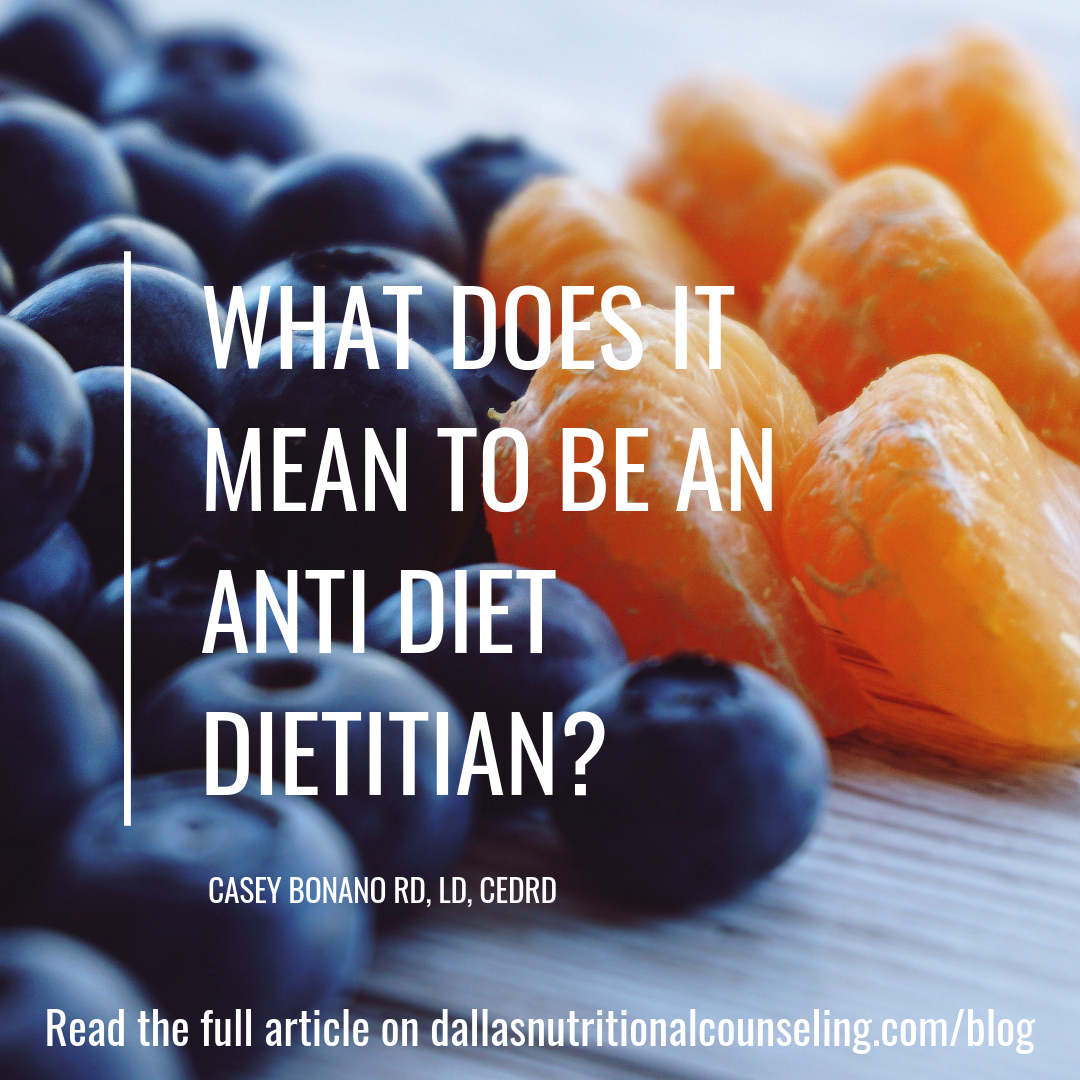
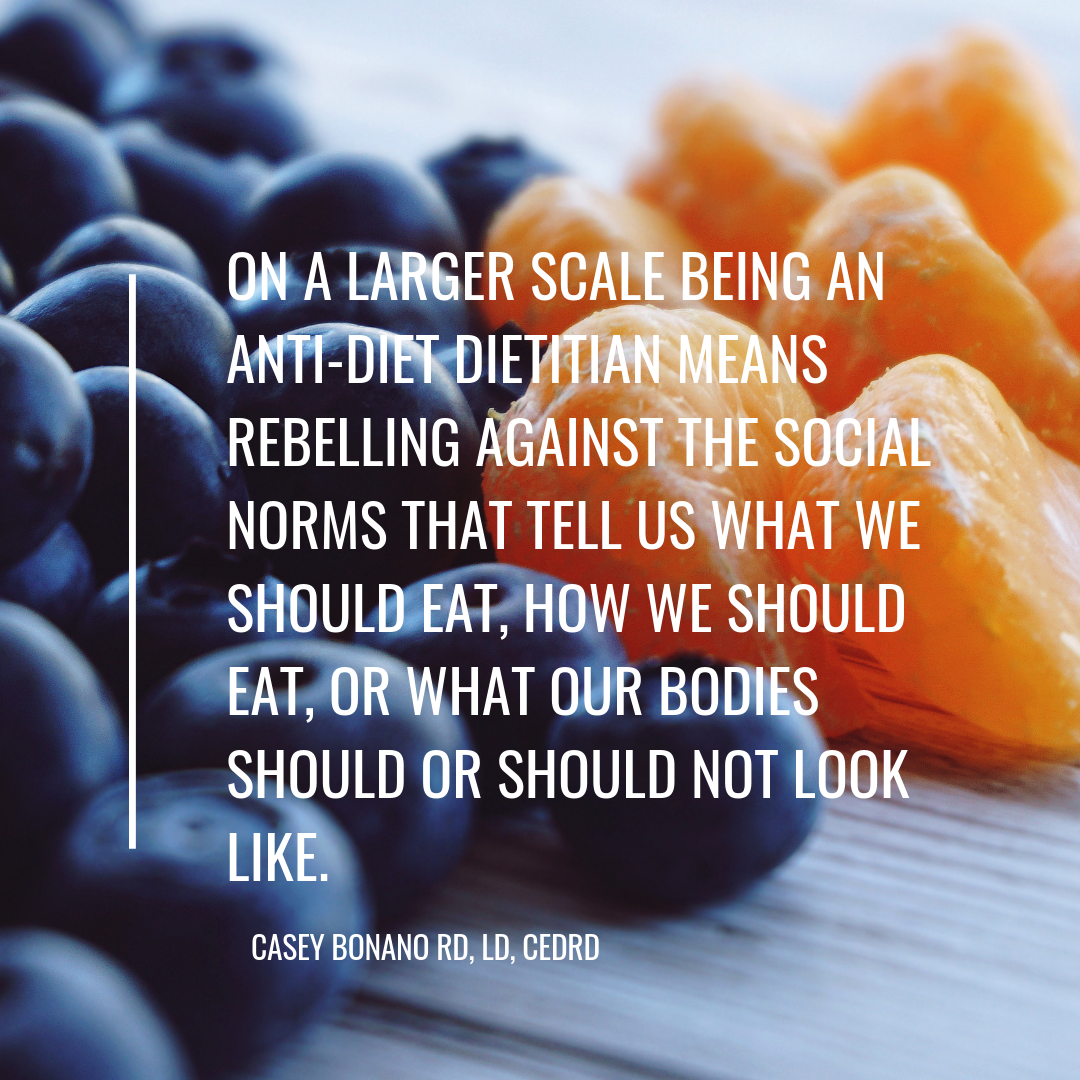
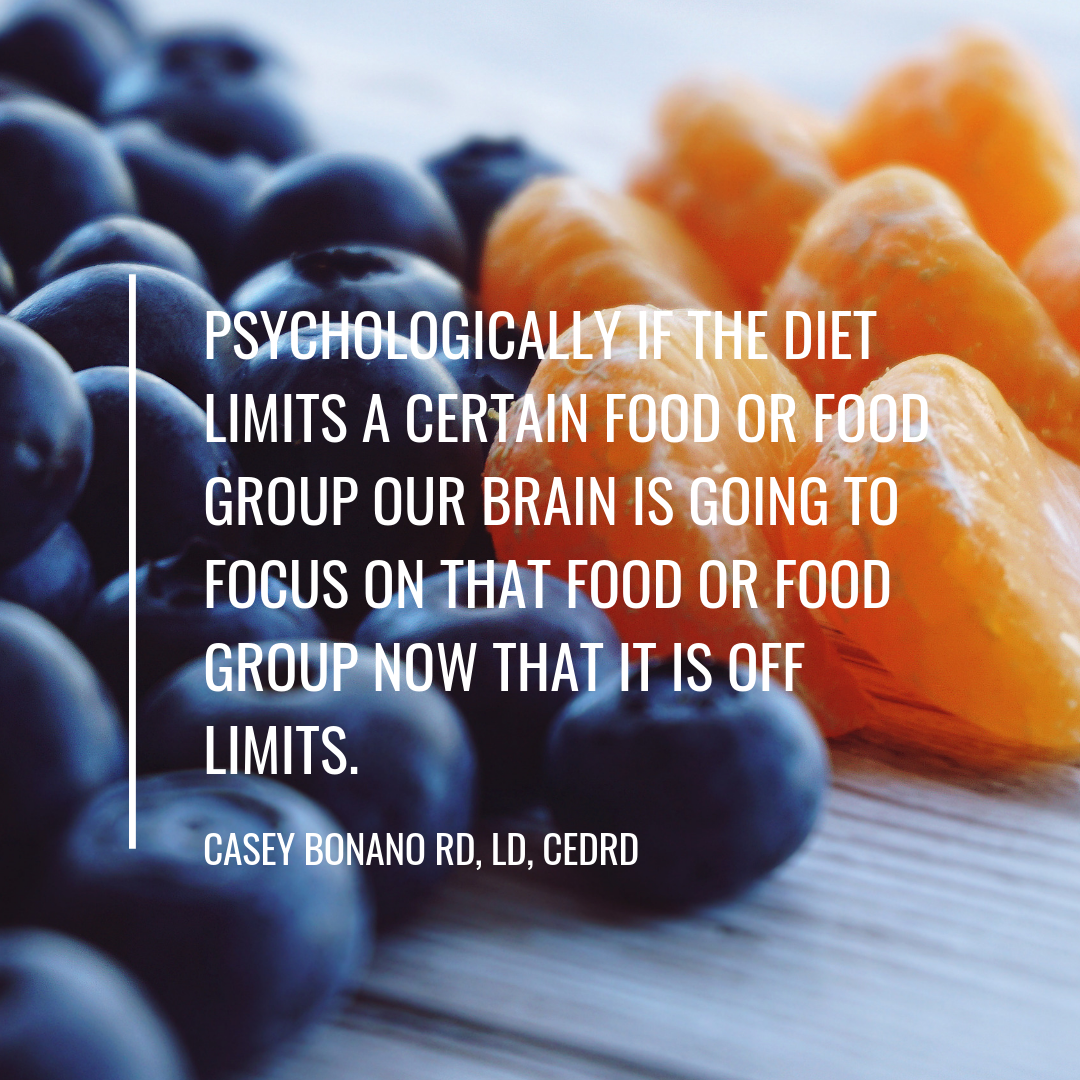

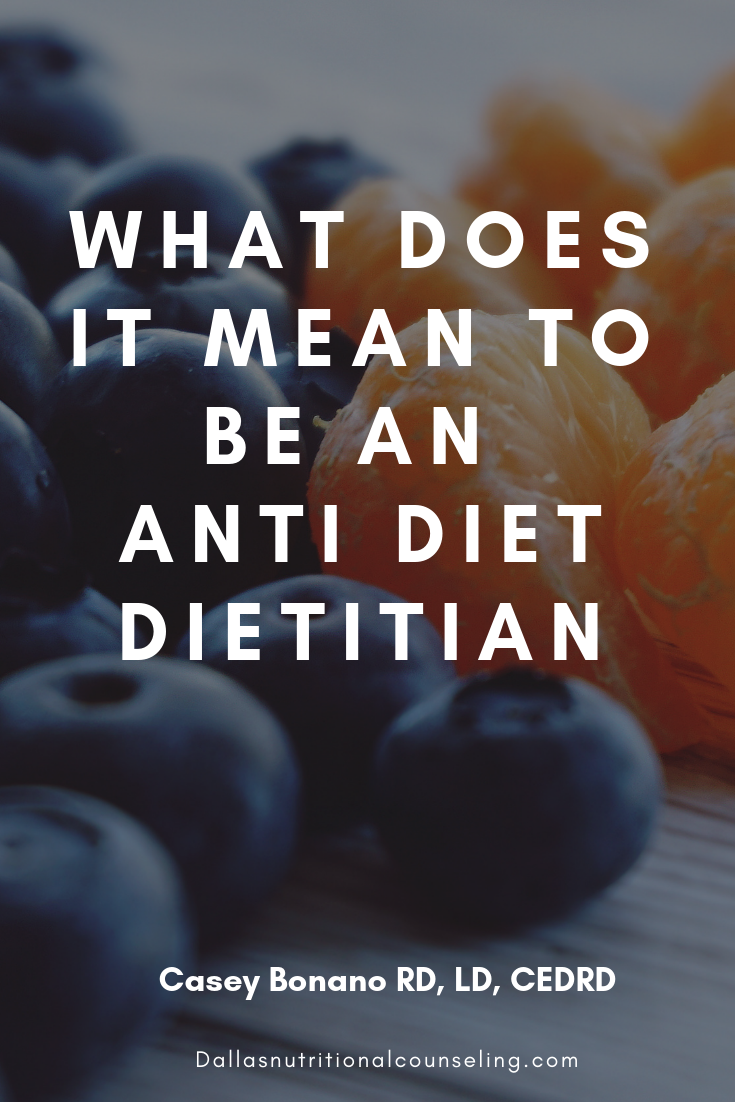


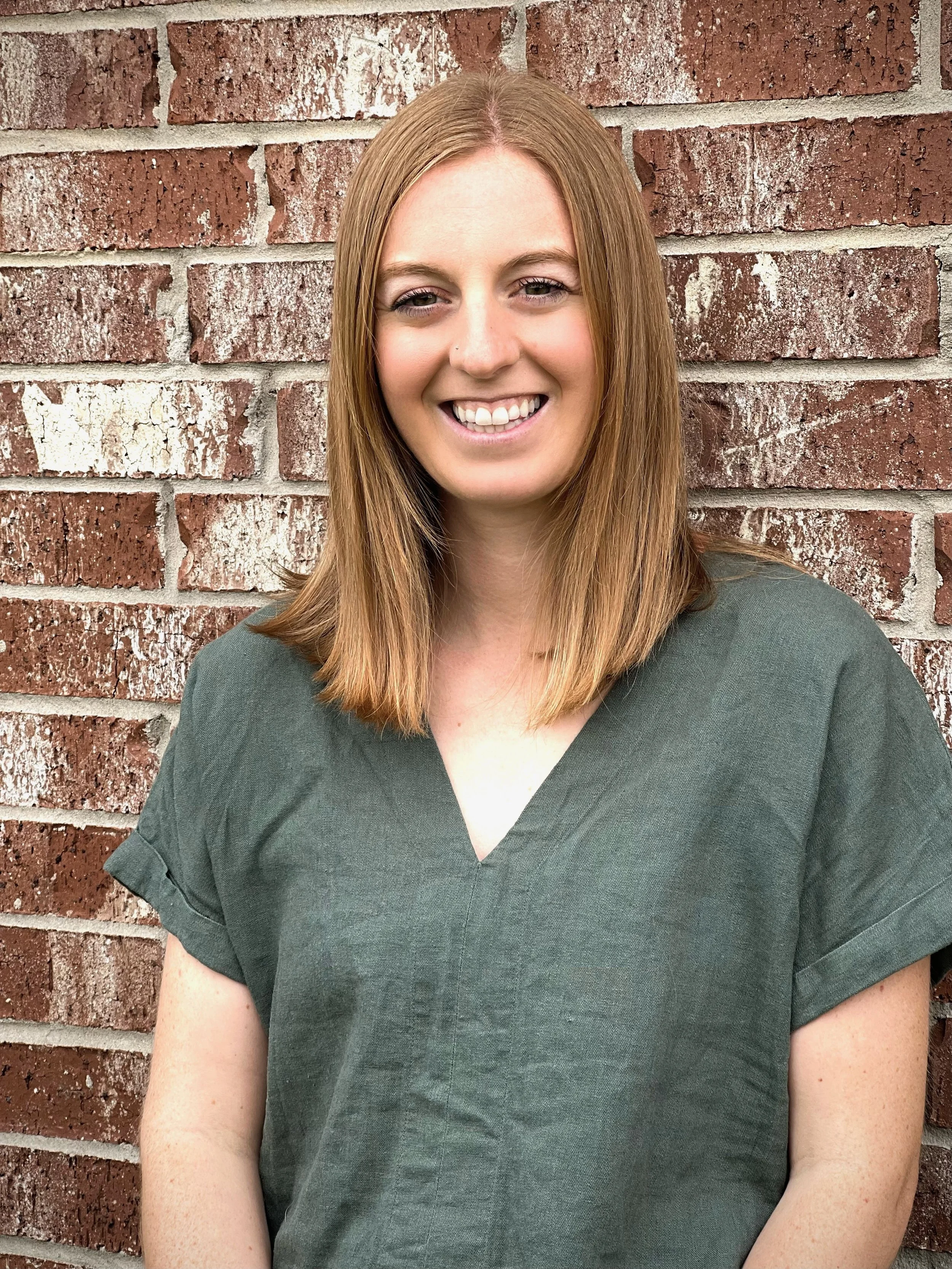

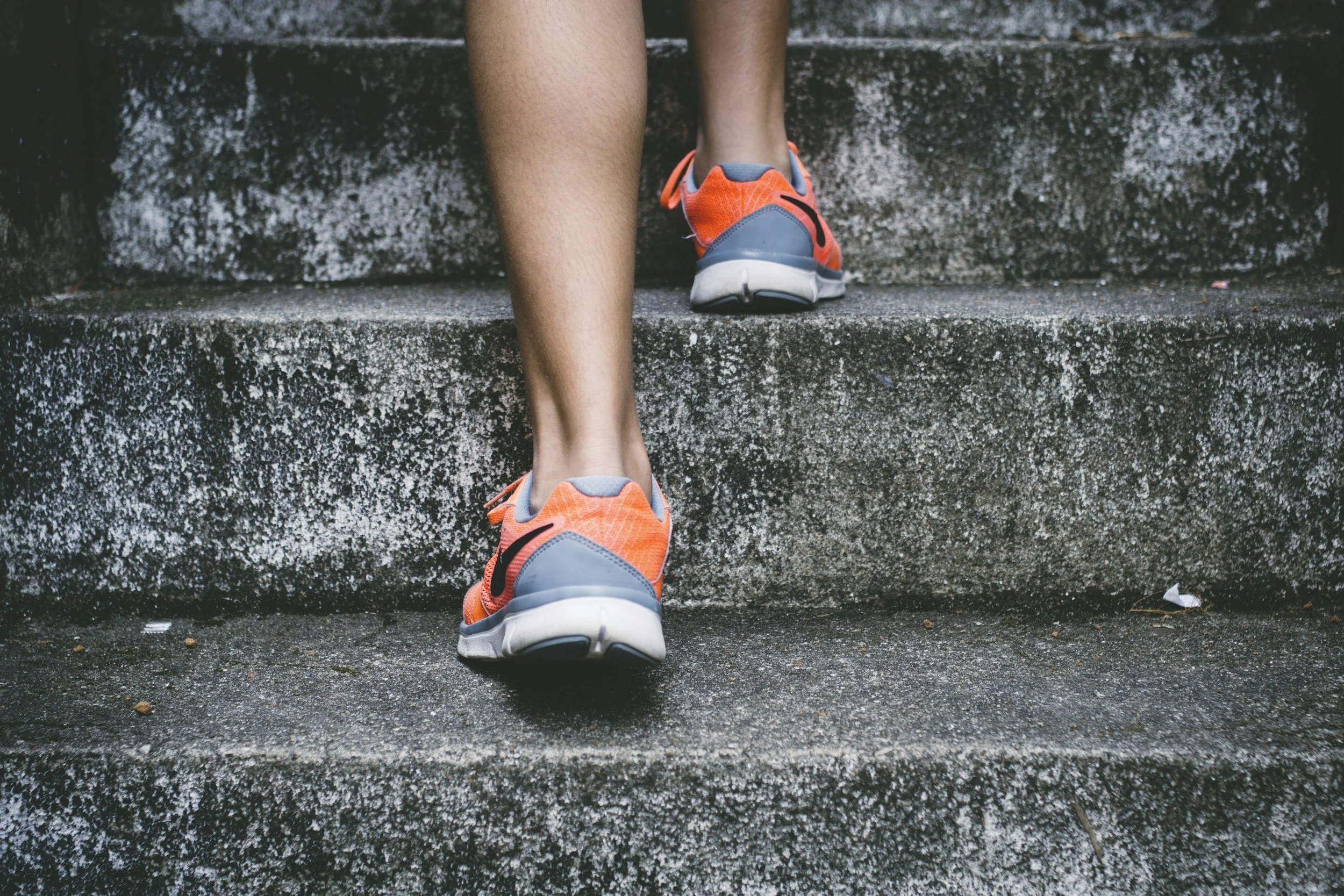


LED Case Consultation - Ethics & Treatment of Longstanding Eating Disorders, Dallas Nutritional Counseling & Angela Harris Counseling professional consultation and supervision for severe and enduring eating disorders